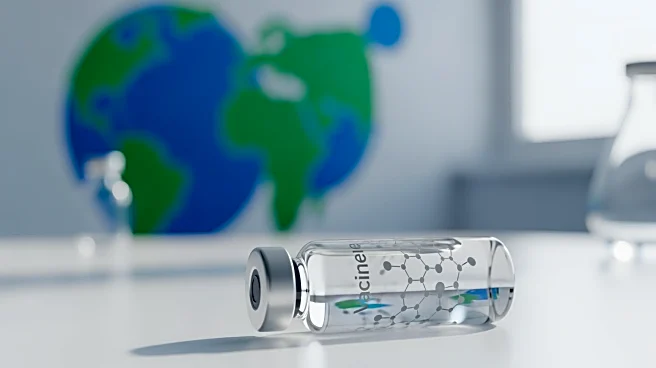What's Happening?
The World Health Organization (WHO) has announced significant progress in the global fight against cervical cancer, coinciding with the first World Cervical Cancer Elimination Day. Since 2023, over 86
million girls in high-risk countries have received the human papillomavirus (HPV) vaccine, which is the leading cause of cervical cancer. This initiative is expected to prevent approximately 1.4 million future deaths from cervical cancer. The WHO highlighted the efforts of more than a dozen countries, including Cuba, Pakistan, and Rwanda, which have launched HPV vaccination programs this year. The HPV vaccine has been shown to be highly effective, with studies indicating no cases of cervical cancer among vaccinated young women in Scotland.
Why It's Important?
The widespread administration of the HPV vaccine represents a major step forward in public health, particularly in countries with high cervical cancer rates. By preventing millions of potential deaths, this initiative not only saves lives but also reduces healthcare costs associated with treating cervical cancer. The success of these vaccination programs underscores the importance of international cooperation and investment in preventive healthcare measures. It also highlights the role of organizations like the WHO and Gavi, the vaccine alliance, in facilitating access to life-saving vaccines in developing countries.









